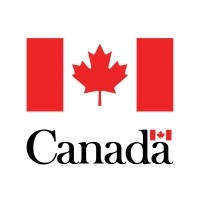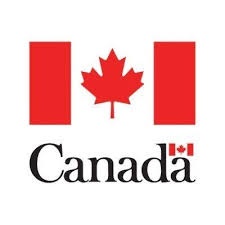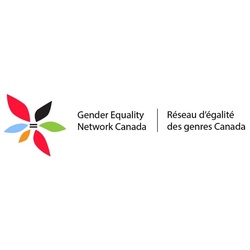
Closed
Community Resilience Fund (CRF)
Last Update: October 27, 2025
Canada
Supports organizations preventing and countering violent extremism in Canada
Grant and Funding
At a glance
Funding available
Financing goals
Develop strategic partnerships
Raise awareness and mobilize the public
Increasing community impact
See more
Eligible Funding
- Maximum amount : 35,000,000 $
- Up to 95% of project cost
Timeline
- Receipt of requests is now closed
Eligible candidates
Eligible Industries
- Educational services
- Health care and social assistance
- Other services (except public administration)
- Public administration
Location
- Canada
Legal structures
- Non-profit
- Public or Parapublic institution
- For-profit business
Annual revenue
- All revenue ranges
Organisation size
- All organization sizes
Audience
- Indigenous Peoples
- Language Minorities
- Canadians
- Youth (<40)
Non-profit candidates
Sector of operation
- Higher Education
- Other Education
- Research
- Law and Legal Services
- Social Services
- Emergency and Relief
- Economic, Social and Community Development
- Civic and Advocacy Organizations
- International Activities
- Diversity and Inclusion
Target groups
- General public
- Children & youth
- Indigenous peoples
- Nonprofits / charities
- Academia / students
- Community leaders
- Minority groups
Revenue structures
- All structures
Scope
- Local
- Municipal
- Regional
- Provincial
- National
- International
Overview
The Community Resilience Fund (CRF) provides up to $35,000,000 in funding to support organizations and researchers working to prevent and counter radicalization to violence in Canada. Eligible activities include research, programming, evaluation, and networking initiatives aimed at strengthening national resilience and public safety.
Activities funded
- Conducting research initiatives that enhance national understanding of preventing and countering violent extremism.
- Developing and delivering programs aimed at preventing radicalization to violence within communities.
- Evaluating the effectiveness of counter-radicalization programs and policies.
- Building networks and partnerships, including organizing conferences, workshops, and seminars to support collaboration in countering violent extremism.
Examples of admissible projects:
$ 90,000
Hosting community feasts and dialogues on cultural resilience to violence
$ 1,090,000
Launching public education campaigns to prevent online radicalization
$ 140,000
Developing evaluation tools for local counter-radicalization initiatives
$ 410,000
Organizing a cross-sectoral conference on community resilience building
$ 221,000
Conducting research on effective counter-radicalization educational tools
$ 175,000
Running a youth leadership program to counter violent extremism
Eligibility
- The applicant must be a legally constituted organization or entity with the capacity to enter into an agreement.
- Eligible applicants include not-for-profit organizations, professional associations, community groups, universities, educational institutions, local or regional governments, police services and authorities (including Indigenous), individual researchers, and for-profit institutions (provided activities are non-commercial and relevant to program goals).
- The proposed project must align with the objectives of countering radicalization to violence and demonstrate a positive impact on Canada or Canadians.
- Activities eligible for funding include research, programming, evaluation, and networking related to preventing and countering violent extremism.
Who is eligible?
- Not-for-profit organizations
- Professional associations
- Police services (provincial, local, or Indigenous)
- Research institutions and universities
- For-profit institutions (for non-commercial activities related to program objectives)
Who is not eligible
- Federal institutions, including any department, branch, office, board, agency, commission, corporation, or other entity which receives an annual appropriation from Parliament.
Eligible expenses
- Salaries and wages for professional, clerical, technical, and administrative staff, including employment-related costs.
- Rent, utilities (electricity, heat, water, telephone), maintenance, insurance, and taxes for offices and buildings used directly for the project.
- Rental of conference and meeting rooms needed for the project.
- Office equipment and minor capital acquisitions (less than $5,000 per item).
- Program supplies and materials (less than $5,000 per item).
- Honoraria for time-limited volunteer service or participation essential to the project (excluding those already compensated elsewhere).
- Computer services, library expenses, research costs, and data collection/analysis.
- Public awareness and educational activities aligned with the project.
- Translation and simultaneous interpretation.
- Audit and evaluation expenses.
- Training, conferences, consultations, professional development, data collection, meetings, and site visits relating to project development.
- Reasonable travel and living expenses in accordance with Treasury Board guidelines.
- Administrative costs up to 15% of the total funding agreement.
- Meals and refreshments for participants in project-related activities and workshops, within National Joint Council guidelines.
- Culturally appropriate expenditures including gifts (up to $100), community feasts, ceremonies, and gatherings, following National Joint Council guidelines.
Eligible geographic areas
- National: Canada (including all provinces and territories)
- Provincial, territorial, municipal, regional, and Indigenous communities within Canada
Selection criteria
- Clarity and relevance of project activities and desired outcomes as they relate to the mandate and objectives of the Community Resilience Fund.
- Demonstrated alignment with established priorities for countering radicalization to violence, including expected positive domestic impact on Canada or Canadians.
- Reasonableness and completeness of the itemized project budget, including disclosure of all revenue sources and expenses.
- Capacity and experience of the project management team to achieve planned results.
- Evidence of support from key community partners and stakeholders, where applicable.
How to apply
1
Confirm eligibility and objectives
- Review the eligibility requirements to confirm your organization and project meet the criteria
- Ensure activities align with Fund objectives and are domestic in scope
2
Draft project proposal
- Prepare a detailed project description highlighting anticipated reach and expected results
- Describe how the project aligns with the priorities of the Community Resilience Fund
- List the names, titles, and contact information of project managers
3
Prepare budget and financial details
- Develop an itemized budget for the entire project
- Include all expected expenses and revenues from all sources (confirmed and potential)
- Disclose any in-kind support
4
Compile supporting documentation
- Gather supporting documents, such as the most recent financial statements, if available
- Provide evidence of support among community partners and stakeholders
- Include an implementation plan for major projects with timelines and methodologies
- Demonstrate the positive domestic impact on Canada or Canadians
- Ensure evaluation components are included
5
Address conflict of interest and compliance
- Disclose any involvement of individuals subject to conflict of interest requirements and register lobbyists if applicable
- Discuss the participation of departmental officials in advisory roles if necessary
6
Submit application package
- Submit the complete application and supporting documents according to call for proposals instructions
- Include all required forms, plans, and disclosures as outlined by the Fund
7
Wait for results
- Await review and notification from the Community Resilience Fund
- Respond promptly to any clarification requests from fund administrators
Additional information
- Applicants must disclose all confirmed and potential sources of project funding, including government and in-kind support, at both the start and end of the project.
- Projects producing intellectual property allow recipients to retain copyright, while the department may request a royalty-free, permanent, non-exclusive license for use.
- Official language considerations require applicants to indicate how their proposed project will respond to the needs of official language minority communities and assess possible impacts.
- The stacking limit for total government assistance is capped at 100% for grants and 95% for contributions.
Contacts
crf-frc@ps-sp.gc.ca
Canada
Apply to this program
Frequently Asked Questions about the Community Resilience Fund (CRF) Program
Here are answers to the most common questions about the Community Resilience Fund (CRF). This section explains what the program is, how much funding is available, eligibility requirements, application deadlines, and other important details to help you determine if this grant is right for your business.
What is the Community Resilience Fund (CRF)?
How much funding can be received?
Who is eligible for the Community Resilience Fund (CRF) program?
What expenses are eligible under Community Resilience Fund (CRF)?
Who can I contact for more information about the Community Resilience Fund (CRF)?
Where is the Community Resilience Fund (CRF) available?
Is the Community Resilience Fund (CRF) a grant, loan, or tax credit?
Apply to this program
More programs like this

Grant and FundingClosed
Industrial Research Assistance Program (IRAP) – AI Assist
National Research Council Canada (NRC)Supports Canadian SMEs in adopting and integrating advanced AI solutions

Grant and FundingClosed
Canada Public Transit Fund
Housing, Infrastructure and Communities CanadaSupports long-term public transit and active transportation infrastructure development

Researchers And FacilitiesPartnering and CollaborationWage Subsidies And InternsOpen
Mitacs Accelerate
MitacsConnect organizations with academia for research and innovation collaboration

Grant and FundingClosed
Canada Service Corps – Service Placements Regional Stream
Employment and Social Development Canada (ESDC)Funding for organizations to develop youth volunteer service placements

Grant and FundingClosed
ISED — Artificial intelligence (AI)
Innovation, Science and Economic Development Canada (ISED)Supports testing innovative AI prototypes for Canadian government needs

Grant and FundingOpen
Active Transportation Fund
Housing, Infrastructure and Communities CanadaSupports infrastructure projects for safer, more accessible active transportation

Partnering and CollaborationGrant and Fundingarchived
Equality for Sex, Sexual Orientation, Gender Identity and Expression Program
Women and Gender Equality Canada (WAGE)Supports equality initiatives for sex, sexual orientation, and gender identity

Grant and FundingClosed
Crime Prevention Action Fund (CPAF)
Public Safety Canada (PSC)Supports evidence-based crime prevention initiatives for at-risk communities

Grant and FundingClosed
Substance Use and Addictions Program (SUAP)
Health CanadaSupports innovative projects addressing substance use prevention and treatment

Grant and FundingOpen
Humanitarian Workforce (HWF) - COVID-19 and other large-scale emergencies
Public Safety Canada (PSC)Supports NGOs in emergency response and capacity building activities
Sign up to our platform to access the Community Resilience Fund (CRF) information sheet for free
Get access to 4,000+ programs, practical guides, personalized alerts, and an AI assistant to support your grant applications.